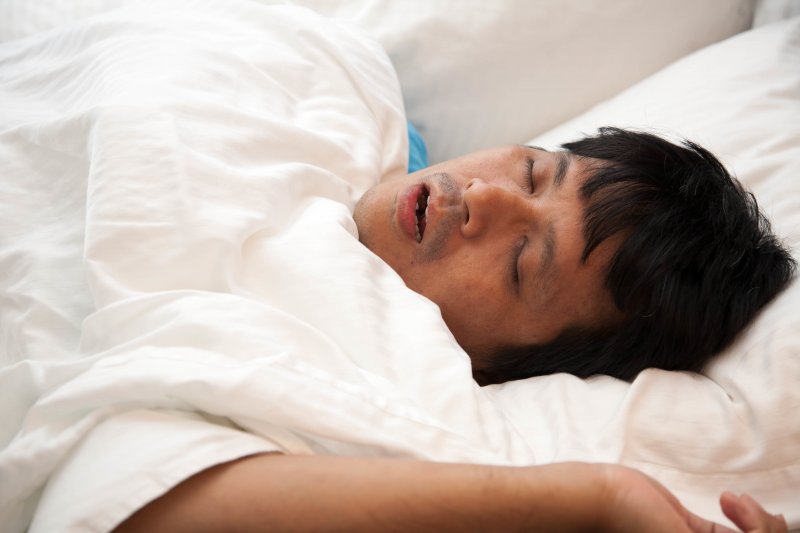Has your sleep apnea in State College been making you feel constantly fatigued? Not getting the quality of rest that you need can have drastic negative impacts on your day-to-day life. As if you needed an additional reason to treat your condition, a recent study published by the American Academy of Sleep Medicine has linked breathing difficulty caused by sleep apnea to accelerated aging. Read on to learn what the research says and how you can keep your body healthy.
How Does Sleep Apnea Impact Your Breathing?
People with severe sleep apnea may not notice because it happens when they’re asleep, but their condition is impacting their breathing ability. When you’re asleep, you may have loud chronic snoring or frequently gasp for air throughout the night. When the muscles in the back of your throat relax too much, it narrows or closes your airways, causing difficulty breathing and a lack of air. Over time, this can lower the oxygen level in your blood and have severe impacts on your overall health.
It’s estimated that about 30 million adults in the United States have obstructive sleep apnea, most of which go untreated and even undiagnosed. According to the authors at the American Academy of Sleep Medicine of a study conducted in June, this condition could be accelerating your aging process.
How Can Sleep Apnea Accelerate Aging?
The study determined 622 adults’ chronological and epigenetic age. They found that participants who had a difficult time breathing due to their severe sleep disorders aged at a rate of 321 days faster, on average. The data was able to provide biological evidence showing that breathing impacted by sleeping disorders had an adverse effect on the body and health of their participants.
They surprisingly also found that the harmful effects of sleeping disorders could be impacting women more than men. Lead author Xiaoyu Li, Sc.D. stated: “While women are often considered to be at lower risk for health outcomes related to sleep-disordered breathing, our findings suggest increased biological susceptibility.”
What Can You Do to Treat Your Condition?
These new findings, just published in June of 2019, emphasize how important it is to seek treatment from your sleep dentist in State College. Some warning signs of this condition to look out for include:
- Chronic snoring
- Gasping for air while asleep
- Headache or sore throat when you wake up
- Chronic fatigue
- Short-term memory loss
- Change in mood and behavior
If you or your partner have noticed any of these symptoms, visit a sleep specialist for a diagnosis as soon as possible. When you visit your Dentist, they can provide you with treatment options such as a traditional CPAP machine or a custom-crafted oral appliance, similar to a retainer to open your airway and improve the quality of rest you’re getting each night.
About the Author
Dr. Donald Marks has worked with some of the world’s finest dentists including Dr. Ron Nevins and Dr. Frank Spear. He is passionate about using his skills and expertise to help his patients get the quality of sleep that they’ve been wanting. That’s why he offers oral appliance therapy, combined therapy, and even snoring treatment. For questions or to schedule a consultation to get treatment for your sleeping condition, visit State College Dental Sleep Medicine’s website or contact 814-234-0329.

